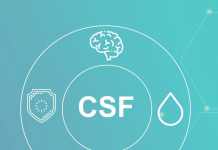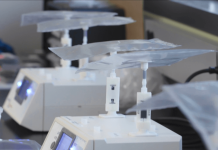Newronika, the developer of groundbreaking adaptive deep brain stimulation technology, is proud to announce the receipt of an Investigational Device Exemption (IDE) from the U.S. Food and Drug Administration (FDA). The IDE clearance paves the way for Newronika to initiate a pivotal U.S. clinical trial to evaluate the safety and efficacy of its adaptive DBS system for patients with movement disorders, including Parkinson’s disease.
This IDE achievement marks a critical step for Newronika in bringing its innovative neuromodulation solution to patients in the United States and the company continues its march toward global adoption of next-generation, data-driven DBS technologies.
Related: Movano Health kicks off cuffless blood pressure device study
“Receiving an IDE from the FDA is a landmark achievement for Newronika,” said Dr. Lorenzo Rossi, Co-Founder and CEO of Newronika. “It affirms the potential of our adaptive DBS system to fill an unmet need in the U.S. market, bringing personalized, real-time brain stimulation to patients who need it most. Our ultimate goal is to change the paradigm for managing neurological conditions worldwide, and this IDE moves us one step closer.”
By using real-time feedback from patients’ brain signals, Newronika’s adaptive DBS solution ensures that therapy is continuously optimized. This patient-tailored approach has the potential to greatly improve outcomes and reduce side effects compared with traditional DBS systems. The company’s core mission—to move neurotechnology beyond the current state of the art—remains at the forefront as it advances toward commercial adoption in Europe, the United States, and beyond.
“The IDE approval for Newronika’s adaptive DBS system represents an exciting advancement in the field of neuromodulation,” said Prof. Dr. Med. Jens Volkmann, Principal Investigator of the study. “This pivotal trial will allow us to rigorously evaluate the benefits of real-time, patient-specific deep brain stimulation and its potential to surpass conventional DBS in symptom management. By leveraging adaptive neurotechnology, we aim to provide more precise, personalized, and effective treatments for Parkinson’s patients, ultimately improving their quality of life.”
The pivotal trial, involving leading U.S. and international clinical centers, will compare the performance of adaptive DBS against conventional DBS in patients with advanced Parkinson’s disease. The results will be pivotal in securing regulatory approval for AlphaDBS in the U.S..




